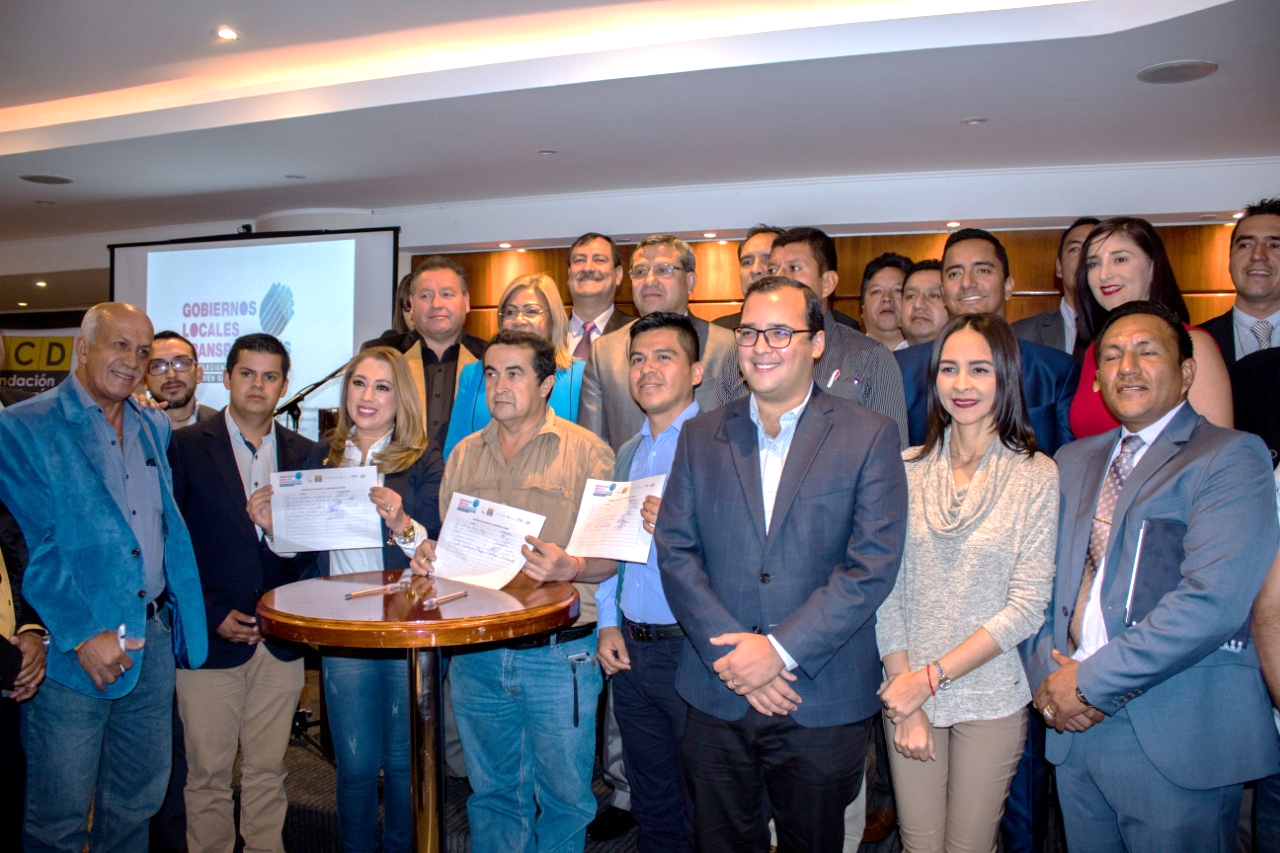Enhancing Transparency in Ecuador’s Municipalities

After a decade in which corruption in Ecuador reached new heights, the local elections of 2019 brought a new opportunity for genuine reform. However, most of these new government officials lacked the skills and experience to implement much-needed steps toward accountability and transparency.
To support Ecuador on its path to democracy, IRI helps local officials identify transparency challenges and create action plans while empowering citizens to advocate for their transparency demands. In the autumn of 2019, the Institute hosted the “Local Transparent Governments Conference: Strengthening Democracy and Good Governance” in Quito, where national and local level representatives convened to exchange best practices and use lessons learned to create action plans.
The historic surge of new candidates and political parties that participated in Ecuador’s March 2019 local elections represented a renewed shift towards democracy following the corrupt government of former President Rafael Correa. Correa took numerous steps to consolidate power by rewriting the constitution, stacking the judiciary and legislature with political supporters and censoring political opponents and civil society before his hand-picked successor, former Vice President Lenin Moreno, was elected in 2017. As 2019 marked the first local elections since Correa’s departure, these new candidates and high voter turnout demonstrated an opportunity for political reform and renewed citizen participation–particularly on the issue of corruption.
The diminished rule of law, civil society and political opposition under Correa allowed corruption to flourish. Local governments were the most vulnerable to acts of corruption due to limits in funding, experience or resources to prevent, identify and prosecute corruption allegations. Though Ecuador’s decentralization and transparency law contain mandates for preventing corruption, under the Correa administration, municipalities allied with the administration were more likely to receive funds to implement their responsibilities than municipalities opposed to the government.
Yet after his election in 2017, President Lenin Moreno and his administration have demonstrated a break with Correa-era policies and a desire to more equitably support municipalities in meeting their obligations. However, deficiencies in communication and coordination between national and local actors persist. Even more, because many winning candidates from the 2019 local elections were not from established parties or are new to politics, these new local administrations have less experience to carry out transparency mandates.
Increasing transparency and citizen engagement in local policy planning is vital for democratic governance. Without public participation, municipalities cannot create representative and transparent policies for their communities; without improved access to information, citizens cannot effectively advocate for stronger government policies; and without anti-corruption practices, governments are unlikely to identify and prosecute instances of wrongdoing.
Since 2017, IRI has worked with local governments in Ecuador to rebuild institutional accountability and transparency. Key programs include training local authorities to support civil society organizations (CSOs) in Quito, Guayaquil and Cuenca to mobilize citizens so there is heightened demand for increased accountability and decreased opacity. Since the March 2019 elections, IRI has worked with newly elected officials and stakeholders in these municipalities, as well as in Puyo and Manta, to identify and create action plans for transparency priorities. These plans help local governments have a clear idea of how to focus their transparency efforts and create a plan by which to do so.
In 2019, IRI partnered with local CSO FCD (Fundación Ciudadanía y Desarrollo or Citizenship and Development Foundation), the Ministry of Government and the Secretariat for Anti-Corruption to host the “Local Transparent Governments Conference: Strengthening Democracy and Good Governance” in Quito. From September 12-13, IRI convened over 150 CSOs, national and local government representatives to share best practices, commit to transparency pledges and participate in workshops on implementing these ideas in their communities.
During the conference, more than 40 national and local officials signed the Commitment to Integrity and Transparency. Signatories pledged to clear frameworks that enforce anti-corruption regulations, support citizens’ right to access information, adhere to the transparency and decentralization law mandates and strengthen participation mechanisms.
The Commitment recognizes the need to include all sectors of society in policy creation. Furthermore, it addresses the importance of training officials with the skills and knowledge needed to carry out transparency initiatives. Signing the Commitment was an important first step in demonstrating the political will in municipalities to promote civic participation as a part of strengthening local democratic governance.
In remarks opening the event, U.S. Ambassador to Ecuador Michael J. Fitzpatrick, Vice Minister of Government Andrés de la Vega and Deputy Secretary for Anti-Corruption Dora Ordoñez praised municipal efforts to improve transparency and spoke on the challenges and opportunities municipalities currently face.
In order to help municipalities move from discussion to action, IRI hosted hands-on workshops for conference participants to give mayors and city council members the opportunity to develop implementation plans. IRI is following up on these commitments to track progress and provide support to municipal officials, as well as signing cooperation agreements with each municipality to strengthen its institutional partnerships with local administrations, oversee activities for each action plan and provide technical assistance and expertise should officials request it.
By strengthening citizen participation at the local level, municipal officials will be better able to establish communication and trust with citizens, comply with transparency and decentralization law mandates and reduce opportunities for corruption. These efforts will help rebuild local governments’ ability to address citizen demands so Ecuador’s democracy does not revert to corrupt practices developed under the Correa era.
Top